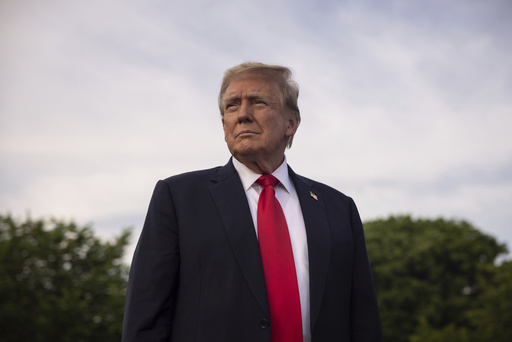WASHINGTON (AP) — Federal prosecutors on Friday asked the judge overseeing the classified documents case against Donald Trump to bar the former president from public statements that “pose a significant, imminent, and foreseeable danger to law enforcement agents” participating in the prosecution.
The request to U.S. District Judge Aileen Cannon follows a distorted claim by Trump earlier this week that the FBI agents who searched his Mar-a-Lago estate in August 2022 were “authorized to shoot me” and were “locked & loaded ready to take me out & put my family in danger.”
The presumptive Republican presidential nominee was referring to the disclosure in a court document that the FBI, during the search, followed a standard use-of-force policy that prohibits the use of deadly force except when the officer conducting the search has a reasonable belief that the “subject of such force poses an imminent danger of death or serious physical injury to the officer or to another person.”
The Justice Department policy is routine and meant to limit, rather than encourage, the use of force during searches. Prosecutors noted that the search of the Florida property was intentionally conducted when Trump and his family were out of state and was coordinated in advance with the U.S. Secret Service. No force was used.
Prosecutors on special counsel Jack Smith’s team said in court papers late Friday that Trump’s statements falsely suggesting that federal agents “were complicit in a plot to assassinate him” expose law enforcement — some of whom prosecutors noted will be called as witnesses at his trial — “to the risk of threats, violence, and harassment.”
“Trump’s repeated mischaracterization of these facts in widely distributed messages as an attempt to kill him, his family, and Secret Service agents has endangered law enforcement officers involved in the investigation and prosecution of this case and threatened the integrity of these proceedings,” prosecutors told Cannon, who was nominated to the bench by Trump.
“A restriction prohibiting future similar statements does not restrict legitimate speech,” they said.
Defense lawyers have objected to the government’s motion, prosecutors said. An attorney for Trump didn’t immediately respond to a message seeking comment Friday night.
Attorney General Merrick Garland earlier this week slammed Trump’s claim as “extremely dangerous.” Garland noted that the document Trump was referring to is a standard policy limiting the use of force that was even used in the consensual search of President Joe Biden’s home as part of an investigation into the Democrat’s handling of classified documents.
Trump campaign spokesman Steven Cheung said in a statement Friday that Biden and “his hacks and thugs are obsessed with trying to deprive President Trump and all American voters of their First Amendment rights.
“Repeated attempts to silence President Trump during the presidential campaign are blatant attempts to interfere in the election. They are last ditch efforts of desperate Democrat radicals running a losing campaign for a failed president,” Cheung said.
Trump faces dozens of felony counts accusing him of illegally hoarding at his Mar-a-Lago estate in Palm Beach, Florida, classified documents that he took with him after he left the White House in 2021, and then obstructing the FBI’s efforts to get them back. He has pleaded not guilty and denied wrongdoing.
It’s one of four criminal cases Trump is confronting as he seeks to reclaim the White House, but outside of the ongoing New York hush money prosecution, it’s not clear that any of the other three will reach trial before the election.
Trump has already had restrictions placed on his speech in two of the other cases over incendiary comments officials say threaten the integrity of the prosecutions.
In the New York case, Trump has been fined and threatened with jail time for repeatedly violating a gag order that bars him from making public statements about witnesses, jurors and some others connected to the matter.
He’s also subject to a gag order in his federal criminal election interference case in Washington. That order limits what he can say about witnesses, lawyers in the case and court staff, though an appeals court freed him to speak about special counsel Smith, who brought the case.
_____
Associated Press reporter Alanna Durkin Richer contributed from Washington.
This website uses cookies so that we can provide you with the best user experience possible. Cookie information is stored in your browser and performs functions such as recognising you when you return to our website and helping our team to understand which sections of the website you find most interesting and useful.
